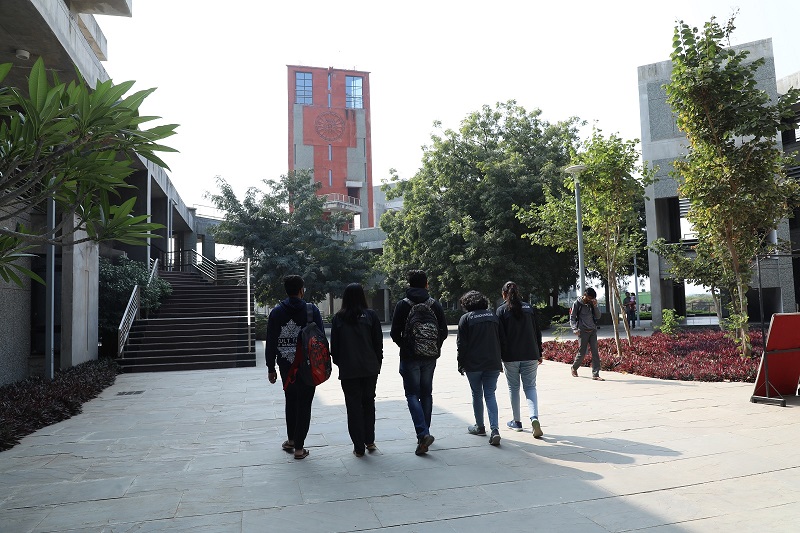BTech
RESEARCH AREAS
IIT Gandhinagar offers 4-year BTech program in 6 Engineering disciplines:

Chemical Engineering
Computer Science & Engineering
Mechanical Engineering

Civil Engineering
Electrical Engineering

Materials Engineering

ADMISSIONS
The admission to the BTech course is through the IIT Joint Entrance Examination (JEE).
PROGRAM HIGHLIGHTS
Project based learning
- IITGN emphasizes project-based learning both inside and outside the classroom.
- Hands-on training via course projects, dedicated term project courses, extensive lab work and an emphasis on “learning by doing”.
- It enables undergraduates to solve challenging problems of the real world rather than be confined to books, black boards and power-points.
Flexibility
- We empower students to discover and pursue their passion, with the most liberal branch change policy in the IIT system.
- It offers the opportunity to most students to switch to a discipline of their choice in their second year.
- Undergraduate students also have a range of other opportunities to pursue their academic interests.
- They may graduate with an Honors or Minors in specific disciplines.
Overseas Research Experience
- The Institute places a strong emphasis on undergraduate research.
- A number of undergraduate students also pursue their research at IITGN itself through the Institute’s competitive Summer Research Internship Programme.
- The Institute has a liberal travel support policy to encourage undergraduate students every year attend scientific conferences overseas to present their work.
FELLOWSHIP
IITGN offers many fellowships to support the students, not just to reward academic achievements, but also promote other interests.
- The Explorers Fellowship offers a unique annual summer programme which encourages students to discover and appreciate the staggering cultural diversity of India by undertaking a six-week journey across the country on a shoestring budget.
- The Gram Fellowship is designed to sensitise students to the rural context divide in the country, this fellowship takes students to rural India. It encourages students to immerse themselves in the experience of living in a village and in the process appreciate and think about technological and non-technological solutions.

